As a young child I had thick eyeglasses, when only one other girl in my elementary school class wore them. Hers were much thinner and weaker than mine. Yes, I was called “Four Eyes” because of my “coke-bottle glasses”, and I couldn’t catch or hit a ball no matter how hard I tried. Being near-sighted was my identity back then, at least in my own mind.
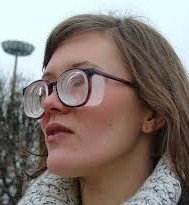
Several years ago when I met someone new at a gathering, as we were introducing ourselves I mentioned that I was a bit near-sighted. I wasn’t wearing glasses any longer, but still saw having limited sight as a key part of who I was. I didn’t want to mislead her that I was normal! I was so surprised when she stepped back to look me over more fully, then said “You don’t look near-sighted”.

Wow! Could my self-definition be stuck in the past, not reflecting who I am now? In my energy healing studies and in working with clients, I’ve seen many people clinging to a familiar problem. They seem to be unwilling to move forward to a place where the problem is less dominant. I consciously began changing my language to say things like “I used to be quite near-sighted”, or “I’m learning to see more clearly”. Often I didn’t mention my eyesight at all, intending to start shifting this pattern.
People can be so dependent on their eyeglasses, they reach for them before they start looking — they don’t expect to be able to see anything without them. I’ve heard about this from near-sighted clients, that they leave their glasses on the bedside table, and put them on immediately before they open their eyes in the morning. And I’ve seen this in people with reading glasses too, squinting through their readers as they look at a menu or a bill or their electronic device.
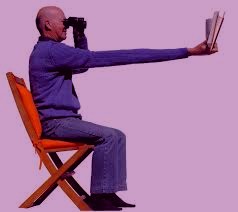
What if you tried to see without your glasses? And did not squint or peer or strain to see, just allowed the images to come in through your eyes, along the optic nerve, and to your brain? You might be surprised at how much you can see, and how exciting it is to see without glasses forming a barrier between you and the environment. Please be safe and legal if you’re driving. And don’t force your eyes to wear glasses when they’re not needed for the task at hand. Take those glasses off and let your vision roam free!
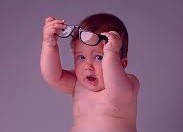
In high school I wore thick hard contact lenses. My parents were told these would stop my vision from declining, a self-fulfilling prophecy which did come true. I could pretend nothing was wrong with my vision since you couldn’t see my lenses unless you looked closely, though I knew I was lying to myself. In marching band practice someone’s music poked the corner of my eye, popping out a lens, which we didn’t find until it was crushed underfoot. I felt crippled, one-eyed, and very guilty since the lenses were so expensive. Who was I kidding, thinking I could function visually like everyone else?

Sometimes people can hang onto the identity of “I have a big vision problem” to get sympathy, or to receive help clear-sighted others don’t need. Or maybe it’s just habit, the way they’ve always defined themselves, like being The Smart One or The Funny One in the family growing up. Well if you were The Smart One, does that mean you can’t be anything else, or even do something foolish occasionally? Labels can limit us, just like putting on a pair of -4 glasses keeps your vision from improving beyond that level, forming a restrictive cage around it.
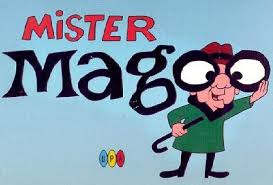
Denying a problem exists doesn’t usually help, and it often gets worse. This was me pretending my sight was “fine” when I was wearing -10 contacts with a strong astigmatism correction. It’s better to acknowledge it, then start moving toward a future where the problem is less serious. A person can have beginning cataracts, and consider herself “a cataract case”, just waiting for them to increase. Or she can see herself as a multi-talented vibrant human being who is in the process of softening her cataracts. You are not your diagnosis! Embrace your uniqueness, and your ability to learn and grow, visually and otherwise.
get help on our Facebook Group!

I wore strong glasses, then contact lenses, from age 5 into my 40s. While making many mistakes, eventually l learned how to improve the way I use my eyes and to see in a more relaxed, healthy manner. It is my pleasure to coach others to do the same. Visit me at https://NancyLNeff.com.
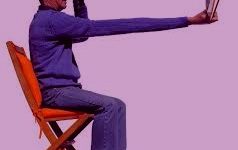
I hv stopped wearing glasses a year ago after wearing them for 4 decades. Not perfect yet, but keep on improving. When I am facing mental strain, I will blocked up myself and start staring. By imagine a swinging dot or long swing are helping me to relax more.
June, this is a great realization that mental strain can lead to eyestrain, and so blurrier vision. In fact I think mental strain and visual strain are the same thing! It’s so excellent that you are taking charge of your vision this way. Congratulations!
Marie, good for you, and this is a great awareness. You’re right – most people are too worried about what you think of them to be judging you. Keep up the good work!
i stopped wearing glasses about 5 month ago, having wore-4 glasses for 10 years. Every time I m meeting new people to do someting with them I found this impulse in me to tell them I m near sighted. probably to prevent them for finding me strange acting because i can t see their faces clearly or objects. Of course I never tell anything, reasoning they probably don t really care about my sight.
Irina, yes! I love your awareness. Someone recently told me “busy” is the new “fine”, both being a mask we can hide behind, refusing to look at (or show) what’s really happening with us. Pretending is seldom a good idea.
Thanks for the post, very thought-provoking and very true.
You probably already wrote about this some time before, but your post made me think of a similar issue – when you mentioned ‘closing one’s eyes on a problem’ or lying to oneself, I think this is also why we sometimes run away from the real issue and bury ourselves under tons of minor issues that have no real impact on our lives. A sort of ‘pretending to be busy’ thing, while avoiding the real problem – I wonder if I make myself clear 🙂